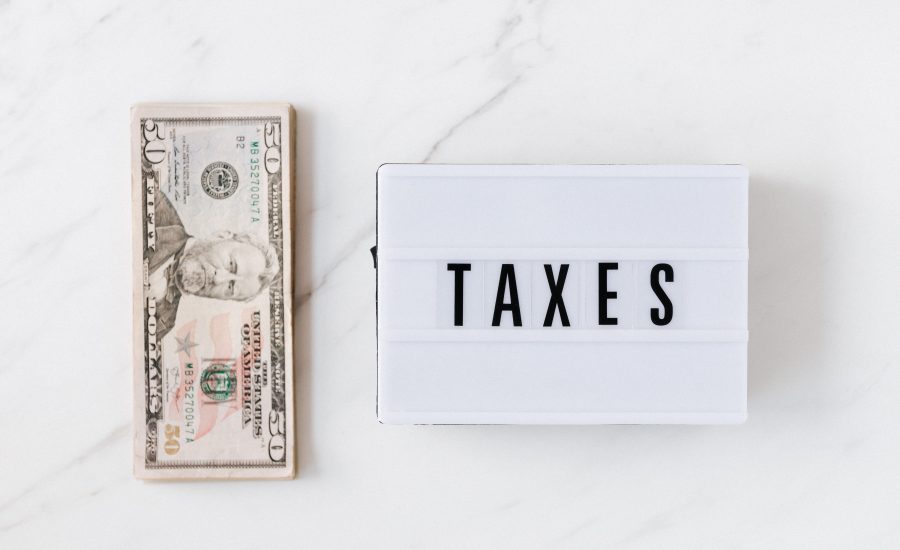Are you intrigued by the world of online gambling? Or perhaps, as an operator, you’re curious about the global landscape of taxes in this high-stakes industry.
Either way, you’re in for a thrilling ride as we traverse the globe, unearthing the countries that impose the highest taxes on online gambling.
From the bustling streets of the United Kingdom to the serene landscapes of Finland, from the vibrant culture of Germany to the rich history of France and the enchanting beauty of Italy, prepare to explore how these nations leverage taxation in the multi-billion-dollar online gambling industry.
In this comprehensive guide, we’ll delve into the mechanics of these tax regimes, their impact on operators and players, and their unique challenges and opportunities.
This journey promises to inform and provide insights into how different cultures approach the regulation and taxation of online gambling.
So, whether you’re a casual gambler, a professional operator, or simply a curious reader, buckle up for a fascinating exploration of the top 5 countries with the highest online gambling taxes:
High Gambling Tax Countries
Different countries have different gambling laws that dictate the gambling in the country. Here are the most high gambling taxed countries:
France: The Highest Gambling Tax Rate
France holds the distinction of being one of the countries with the highest taxes for online gambling. The French government has implemented a complex structure of taxation that varies depending on the type of gambling activity.
Evolution of Online Gambling in France
Online gambling got its legal status in France in 2010. The regulatory authority for online games, ANJ, oversees the industry. Legalizing online gambling was a significant step towards modernizing the country’s gambling laws and adapting to the digital age.
A Shift to Gross Gaming Revenue (GGR) Taxation
Interestingly, the French Senate approved the 2020 Budget Bill that saw a shift from a turnover-based tax system to a gross gaming revenue (GGR) tax system. This means that taxes are applied to the net earnings of gambling operators after winnings have been paid out to players.
Under this system, the tax rates vary depending on the type of gambling. For horse race betting, the rate is 19.9% of GGR. For sports betting, it rises to 33.8%. Online poker is taxed at 36.7%.
Impact on the Gambling Industry
The high tax rates have notably impacted the French gambling sector. While they contribute significantly to the government’s revenues, these high taxes can be a barrier for some operators considering entering the French market.
The gross revenue of online sports betting sites approved by the French National Gaming Authority amounted to approximately €1.4 billion, according to a 2021 report. This significant revenue demonstrates the potential profitability of the French market despite the high tax rates.
Gambling Winnings and Taxation
While the gambling operators face high taxes, the gamblers have a different scenario. In France, winnings over €1,500 are taxed at 12%. However, the operators, not the French gamblers, are liable for taxes on individual winnings.
France’s Stance on Tax Rates
The high tax rates reflect the French government’s approach to regulating the gambling industry. The goal is to ensure consumer protection and prevent problem gambling.
Despite the high taxes, France continues to be a lucrative market for many operators, given the popularity of various forms of gambling in the country.
Germany: Steep Taxes for Players
Germany, known for its rich history and vibrant culture, is also recognized for its stringent online gambling taxation. The tax landscape for online gambling in Germany is complex and has evolved significantly over the years.
Evolution of Online Gambling in Germany
Online gambling in Germany has been subject to a series of changes in legislation. Initially, the German Interstate Treaty on Gambling in 2008 prohibited most forms of online gambling.
However, the European Court of Justice ruled that the treaty violated EU rules for free trade between member states, leading to revisions. Currently, online casinos are legal but heavily regulated within the country.
The Controversial 5.3% Turnover Tax
In recent news, Germany’s legislature on June 23, the Bundestag, voted to approve a bill setting a controversial 5.3% tax on online slots and poker stakes. This turnover tax is applied to the total amount wagered by players, not just their winnings or operators’ profits.
This tax rate is significantly higher than the average taxation rate for online casinos in the EU, which has led to criticism and controversy. Critics argue that this high tax rate disadvantages online operators compared to land-based operators, potentially in breach of EU state aid rules.
Impact on the Gambling Industry
The high tax rates have substantial implications for both operators and players. For operators, these taxes can eat into their profits, making it more challenging to sustain a profitable business.
For players, the high tax rate might indirectly affect them if operators choose to pass on the costs through reduced odds or bonuses.
Despite these challenges, Germany’s online gambling sector remains robust. Gambling tax revenue was highest in Nordrhein-Westfalen, Germany’s most populous state, at €138.3m, including €19.5m from online slots and €24.7m from sports betting. Germany’s gross regulated gaming revenue totaled around €9.4 billion in 2021.
Players’ Winnings and Taxation
Interestingly, while operators face high taxes, players are not taxed on their winnings in Germany. However, German gamblers must pay a 5% fee on any stake wagered, whether they win or lose.
Germany’s Stance on Tax Rates
Germany’s high tax rates reflect the government’s approach to regulating the online gambling industry. The goal is to ensure consumer protection, prevent problem gambling, and generate significant revenue for the state.
Despite the high taxes, Germany continues to be a lucrative market for many operators due to the popularity of various forms of gambling in the country.
In conclusion, Germany’s approach to online gambling taxation is unique and multifaceted. While the high tax rates may pose challenges for operators, the robust regulation of the industry seeks to balance revenue generation with consumer protection and responsible gambling.
United Kingdom: A Point of Consumption Tax
The United Kingdom is known for its robust gambling industry, which plays a significant role in its economy. The tax rates imposed on this sector are among the highest globally, contributing significantly to government revenues.
Evolution of Online Gambling in the UK
The UK has legal and regulated online gambling since the Gambling Act 2005. The UK Gambling Commission was established under this Act to regulate commercial gambling in Great Britain.
Point of Consumption Tax
In 2014, the UK introduced a ‘Point of Consumption’ tax. This means that all gambling operators must pay a 15% tax on gross profits earned from UK customers, regardless of where the operator is located. This tax applies to all forms of online gambling, including sports betting, casino games, and poker.
This was a significant shift in the taxation approach, as previously, many online gambling operators based their operations in jurisdictions with lower tax rates.
With the introduction of the Point of Consumption tax, these operators were now liable to pay taxes in the UK for profits earned from UK customers.
Impact on the Gambling Industry
Implementing the Point of Consumption tax substantially impacted the UK’s gambling industry. It increased operating costs for many operators, especially those based offshore.
Despite these challenges, the UK’s online gambling sector remains strong. In 2019, the United Kingdom’s online gambling revenue made up the largest share, 30.1 percent, of Europe’s total online gambling revenue.
Player Winnings and Taxation
In contrast to the high taxes on operators, the UK does not tax individuals on gambling winnings. This includes winnings from sports bets, horse racing, football, tennis, golf, and even results of political events.
Proposed Changes to the UK Gambling Levy
In a recent development, the UK government is considering introducing a new 1% levy on the gross gambling yield for online gambling operators. This would be in addition to existing taxes and fund research into and treatment of gambling addiction.
The UK’s approach to online gambling taxation reflects a balance between generating revenue and ensuring a fair and safe gambling environment. While the high tax rates can be challenging for operators, they contribute significantly to public finances.
Finland: High Taxes on Lottery Prizes
Like many other countries, Finland’s gambling industry is a significant contributor to the economy. The taxation framework applied to this sector is unique and has evolved.
Evolution of Online Gambling in Finland
Finland is one of the few countries where the state operates gambling. The state-owned company Veikkaus has a monopoly on all gambling activities, both online and offline. It’s also noteworthy that Finland has the highest per capita gambling expenditures globally.
Taxation of Gambling Operators
Casino operators in Finland must pay a tax rate of 8.25% on their net profits1. All profits from Veikkaus are donated to social causes and charities, which makes the Finnish gambling industry unique.
However, the gambling tax rate was temporarily lowered to 5% for 2023, but it is set to return to its original rate of 12% from 2024 onwards. This temporary reduction may have been an attempt to mitigate the economic effects of the COVID-19 pandemic on the industry.
Impact on the Gambling Industry
The high tax rates have significantly impacted the Finnish gambling industry. Despite these tax rates, the Finnish gambling market is estimated to be worth around €780 million, indicating that the industry continues to thrive.
Taxation of Gambling Winnings
Unlike some countries, Finland does not tax individual winnings from gambling. This applies to residents and non-residents, making Finland an attractive destination for gamblers.
Problem Gambling in Finland
Despite the thriving gambling industry, Finland faces a significant problem with gambling issues.
According to the latest figures, Finland has a problem gambling rate of 3% of its population, ten times higher than Spain’s, which has no gambling monopoly. This highlights the necessity of implementing effective measures to promote responsible gambling.
Finland’s approach to online gambling taxation is unique due to the state monopoly and the allocation of profits to social causes. While the high tax rates can be challenging for operators, they contribute significantly to public finances and social initiatives.
Summary
It’s crucial to note that online gambling is dynamic and constantly evolving. Tax laws and regulations, in particular, can change frequently and vary greatly from one jurisdiction to another. Therefore, it’s always imperative to stay updated with the latest developments.
Whether you’re a gambling operator or an individual player, always consult with a local expert or legal advisor, or conduct thorough research into your specific location’s local laws and regulations before engaging in any online gambling activities.
Remember, while this guide provides a comprehensive overview of the current landscape, it is based on the most recent data available. Laws and tax rates may have changed since then, so always double-check the current rules in your area. Stay informed, stay legal, and gamble responsibly.
Conclusion: The Impacts of High Gambling Taxes
While high gambling taxes can generate significant government revenue, they can also significantly impact the gambling industry. They can discourage operators from entering a market, encourage players to use unregulated platforms, and increase business costs.
Therefore, governments must carefully balance their revenue needs with the potential impacts on the gambling industry.
As always, it’s important to remember that tax laws and regulations can change. Always consult with local laws or a tax professional if you plan to engage in gambling, especially on a large scale in these countries.


